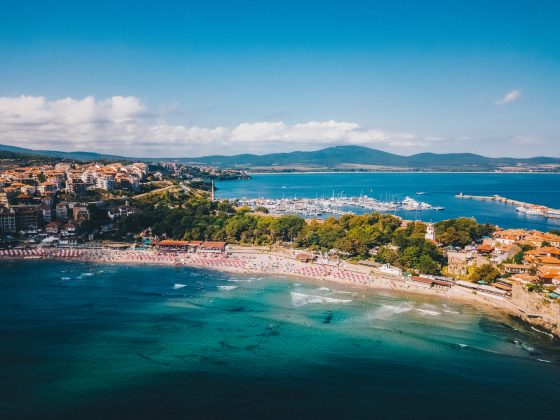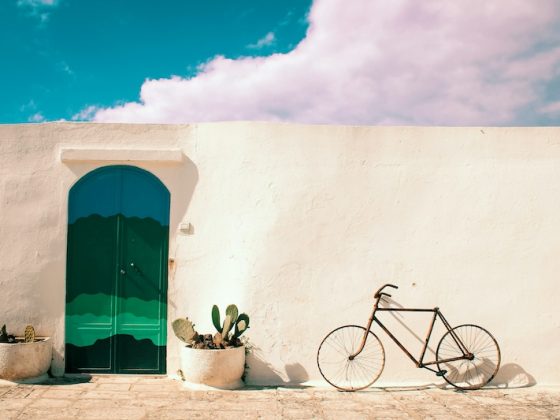Are you ready to move offshore? Are you up to the task of taking your business offshore? Can you move you and your family out of the United States? In this article I’ll look at what it takes to move offshore.
I’ve been helping clients move offshore since 2000. I wrote my first book on the topic in 2004 and I practice what I preach. I’ve lived in 5 countries and set up businesses in 15 different nations.
Over those years, I’ve met many successful expats as well as those who’ve given up and gone home. I can tell within 5 minutes of meeting someone if they have what it takes to move offshore. In this post, I’ll try to identify the traits and considerations of a successful offshore entrepreneur or expat.
There are three successful groups of expats abroad:
- Those looking for a better life,
- Those looking for a better return on their business (lower taxes, lower cost of labor, etc.), and
- Those looking for adventure and a nomad or perpetual traveler lifestyle.
I’ll look at each of these in turn, but let me start with who shouldn’t bother to go offshore.
Who Should Stay Home
The most important characteristic of international business owners and those moving abroad is attitude.
Many aspiring expats can’t hack the offshore life. These are usually Americans who miss the creature comforts of home and don’t have a need for excitement. They’re from the suburbs and prefer the safety of what they know (and chain restaurants with production line food) to a life of discovery and appreciation for other cultures.
I see them speaking down to locals and telling everyone who’ll listen how great the gold lined streets of their home country are. They get upset when the waitress doesn’t speak English and they hope she’ll understand when they talk louder. They didn’t bother to learn about the culture or country they’re visiting and didn’t spend the time learn a few key phrases. They assume anyone who doesn’t speak English is stupid. The first thing that pops in their mind when they hear Panama or Colombia is, gosh, isn’t that a dangerous place?
If you look at the world through red white and blue colored glasses, you should probably just stay home. If you look out and see a great adventure and countries offering better tax and business deals than are available in the US, then moving you or your business is something to consider.
[amazon_ads]A Better Life Abroad
Those looking for a better life are typically retirees moving abroad on a budget. They’re looking for a higher quality of life and living on their pension and IRA distributions. The most popular countries for retirees on a budget are Costa Rica, Panama, Mexico and Colombia. They typically stay near to their home country because they want to be able to visit family and friends.
Those who don’t care about visiting home also look to the Philippines, Thailand, and Southeast Asia, where the dollar goes even further.
Retirees usually plant their first flag abroad by moving their IRA offshore or setting up a standard international bank account. You can take your IRA offshore and invest abroad by forming an IRA LLC and transferring your account into that structure. For more, see: Here’s how to take your IRA offshore in 6 steps.
American retirees moving abroad are usually value seekers because going offshore doesn’t reduce their US taxes. US citizens are taxed on their worldwide income no matter where they live. There are tax benefits available offshore, but not on capital gains.
That is to say, US citizens pay US tax on their capital gains, no matter where earned. Living in the US or in Panama makes no difference. For this reason, most high net worth retirees stay home.
There is one exception to the rule that Americans must pay US tax on their capital gains. If you move to the US territory of Puerto Rico, spend 183 days a year on the island, and otherwise qualify for Act 22, you’ll pay zero tax on your capital gain. That’s right, Americans can move to Puerto Rico and pay nothing on capital gains earned from assets acquired after they become a resident of the island.
Puerto Rico is the ONLY option for Americans who wish to eliminate US tax on their capital gains. As a territory, Puerto Rico source income is exempted from US taxes under US tax code section 933. When you move to a foreign country, Federal tax law applies to you. When you move to Puerto Rico, only Puerto Rico’s tax laws apply.
And we’re not talking about tax deferral here… we’re talking about tax free. It’s not like an IRA where you must pay US tax when you take distributions. Capital gains earned by residents of Puerto Rico under Act 22 are tax free and never taxed by the US IRS should you decide to move back to the mainland.
So, moving offshore is great for those looking for a higher quality of life on a budget. Moving to Puerto Rico is the solution for high net worth investors who want to cut their US taxes. For more on Puerto Rico, see: How to stop paying capital gains tax.
Moving Your Business Offshore
If you’re seeking lower taxes and a business friendly environment, I suggest Panama and any country with quality low cost labor that won’t tax your corporate profits. Where the United States taxes its citizens on our worldwide income, there are many nations that won’t tax foreign sourced income.
- Foreign Sourced Income: Profits generated by selling from one country to another. For example, a business located in Panama selling online to customers in the EU and US is generated foreign sourced income in Panama which is not taxable there. A bar or restaurant in Panama is earning local sourced income, which is taxable in the country.
- For a list of countries that don’t tax foreign sourced income, click here.
The tax benefits of moving a business offshore are 1) the Foreign Earned Income Exclusion, and 2) tax deferral.
If you’re living and working abroad, and qualify for the Foreign Earned Income Exclusion, you can earn up to $102,100 in salary free of Federal income tax. If you earn more than this, and don’t hold it in an offshore company tax deferred, you’ll pay US tax on the excess.
You qualify for the FEIE by being out of the US for 330 days during any 12 month period or being a resident of a foreign country and spending 5 months or less per year in the US. The FEIE covers income earned in the foreign country and not income earned while you’re in the United States.
For example, your business, which is operated in a Panama corporation, nets $100,000 in 2017 and you’re in Panama for the whole year. You pay no Federal income tax on these profits. Likewise, if both spouses are working in the business, and both qualify for the FEIE, you can earn up to $200,000 tax free.
If you earn more than $200,000, you can hold that money in your Panama corporation tax deferred. When you take it out, presumably as a non-qualified dividend, you’ll pay US tax at ordinary income rates.
So, if your business generates $1 million a year, you can take out $100,000 or $200,000 per year tax free. The rest will remain in the corporation and be taxable in the US at about 35% when you take it out.
The US IRS always want’s it’s share of foreign retained earnings. As with capital gains, there is one and only one exception to this. You can set up a business in Puerto Rico under Act 20, move to the island under Act 22, and pay zero US tax on corporate dividends.
Puerto Rico is basically the inverse of the Foreign Earned Income Exclusion. You pay local tax on your salary, 4% tax on your corporate net profits, and pay dividends to owners who are residents of Puerto Rico tax free… not tax deferred but tax free.
For example, you earn $1 million in your Puerto Rican business and take out a salary of $100,000. You pay tax at ordinary rates on that $100,000 and zero on the $900,000 dividend. That $900,000 profit is taxed at 4% at the corporate level and the distribution to the Act 22 resident is tax free.
As a result, businesses earning $200,000 or less will always do better offshore while businesses earning $1 million or more get a better tax deal in Puerto Rico. For more on this, see: Panama vs Puerto Rico, which is right for your business?
Perpetual Travelers and Online Warriors
The catch with Act 20 in Puerto Rico is that it currently requires you hire a minimum of 5 employees on the island. There is legislation pending that would reduce this to 1 employee. If that law does pass, you’ll be required to spend 183 days a year in Puerto Rico (some suggest 200 to be audit proof).
Puerto Rico doesn’t currently work for those without employees. One man or woman operations that are portable and can be operated from anywhere are better offshore. Businesses that require only you, a laptop and an internet connection might qualify for Puerto Rico one day, but that will depend on the legislature.
For you online warriors, I suggest you focus on the Foreign Earned Income Exclusion, tax deferred retained earnings, and an offshore corporation in a solid business jurisdiction. If you’re a perpetual traveler, and don’t want to put down roots anywhere, you will need to be out of the US for 330 days a year to earn the tax benefits.
If you need to visit the US for work or family reasons, and are cutting the 330 day rule close, you should get residency in Panama. Apply for residency in Panama through the Friendly Nations Reforestation Visa program. You can gain residency in Panama with an investment of $20,000 and use that to qualify for the FEIE. This will allow you to stop counting days and spend more time in the United States.
Panama works for road warriors because you don’t need to spend a certain number of days in the country to maintain your residency. You should visit a few times a year, and Panama should be your home base, but there is no physical presence requirement to keep up your visa.
I hope you’ve found this article on whether you’re ready to move offshore to be helpful. For more information on taking your IRA offshore, setting up an offshore business, Puerto Rico’s Acts 20 and 22, or residency in Panama, you can reach me at info@premieroffshore.com or call us at (619) 550-2743. We’ll be happy to assist you to set up in an efficient and tax compliant manner. All consultations are free and confidential.
[amazon_ads ads=1] [amazon_ads ads=7] [amazon_ads ads=3] [amazon_ads ads=4] [amazon_ads ads=5] [amazon_ads ads=6]
Contact Author
"*" indicates required fields
Stay Ahead on Every Adventure!
Stay updated with the World News on Escape Artist. Get all the travel news, international destinations, expat living, moving abroad, Lifestyle Tips, and digital nomad opportunities. Your next journey starts here—don’t miss a moment! Subscribe Now!










